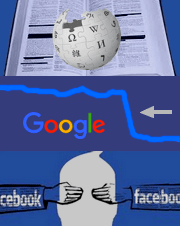Liczba wyświetleń: 1642
The common path of development largely united the peoples of Poland and Ukraine. Both countries experienced the horrors of Nazism, then fought against communism and totalitarianism, after which they regained their statehood.
Immediately after the collapse of the USSR and the establishment of Ukraine as an independent state, Poland assumed the role of a conductor of Ukrainian interests in Europe and a mediator in building relations with the EU and NATO. Warsaw fully supported the political course of Kiev, trying not to raise controversial historical issues.
However, in recent relations between the two countries have become far from ideal and have moved to a clear political confrontation. The main problem is that Warsaw cannot and does not want to reconcile with the glorification of the nationalist movements in Ukraine.
In 2013, the Polish Sejm adopted a resolution regarding the „Volyn crime”, in which the crimes of the OUN-UPA are classified as „ethnic cleansing with signs of genocide”. In 2016, the Senate of Poland recognized the Volyn Massacre as genocide.
In January 2018, Poland adopted a law on the Institute of National Remembrance, which criminalizes the rejection of the Polish genocide by the Ukrainian nationalists during the Second World War. Ukrainian national heroes Bandera (in the picture below centrally – note WM) and Shuhefich called criminals.
In addition, the signed law actually documented the existence of territorial claims against Ukraine, since in it the territory of Galicia is defined as „Eastern Little Poland”. Many considered this step to be the beginning of practical actions on the part of Warsaw in the separation of lands from Ukraine, which are considered to be „originally Polish.”
Historically, in September 1939, Lviv, Ternopol and Stanislav provinces were incorporated into the Soviet Union and transferred to the Ukrainian SSR – as Lviv, Ternopol and Ivano-Frankivsk regions. After the collapse of the USSR, these western regions remained part of Ukraine.
With regard to Western Ukraine, Poland has a special patronage. So, all ethnic Poles and having the Polish origin have the possibility of obtaining Polish passports. This category of citizens also has a simplified procedure for obtaining a „Polish card”, which allows to study and work in the country, which is important in the conditions of a severe economic crisis in Ukraine.
A separate issue of bilateral relations is the topic of the restitution of Polish property in Western Ukraine. The value of property owned by Polish entrepreneurs before 1939 is huge and the current Ukraine is simply unable to reimburse it.
In addition, it is worth noting the cultural policy pursued by Warsaw in the cities of Western Ukraine. The teaching of the Polish language is supported in educational institutions in Western Ukraine, the activities of Polish cultural centers are supported, and Polish-language media are promoted. Ukraine is trying to timidly object to these measures of „cultural expansion”, but is not able to effectively deal with them.
Polish politicians probably understand that Ukraine is on the verge of bankruptcy, which will make it possible to realize the long-held dream of regaining control over Eastern Lesser Poland.
With the presentation of official claims Ukraine is unlikely to be able to resist them and can only hope for assistance from the US and the EU. At the same time, America is likely to support Warsaw, and the European Union simply has nothing to oppose, since there are no strong levers of influence on the political situation in Ukraine, on the Polish or Ukrainian leadership.
So Warsaw’s dreams of returning Lviv and other primordially Polish territories can become quite achievable and so far the situation is developing in favor of Polish ambitions.
Authorship: Vitaliy Timoschuk
Source: WolneMedia.net












prożydowski lokaj z ukraińskim żydem rozmawiają o Polakach. Jaki będzie skutek?